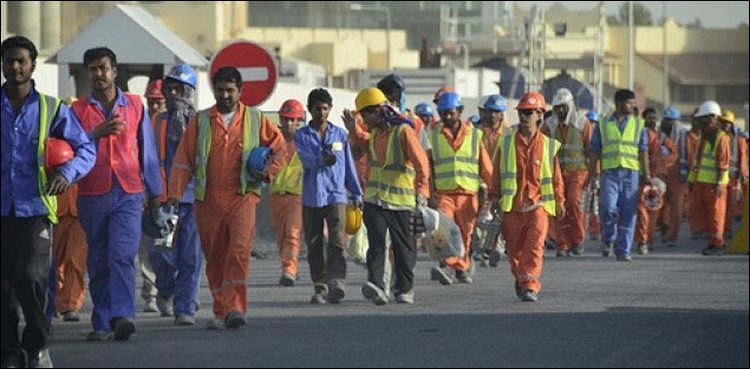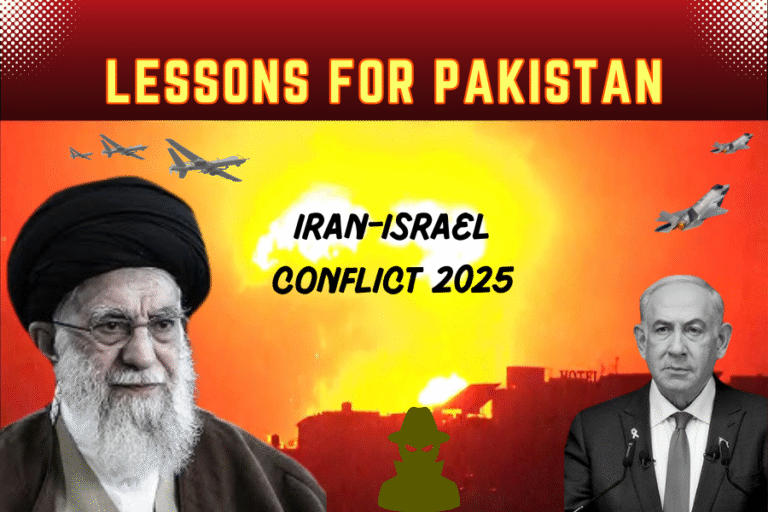(By Mohsin Tanveer)
In Manchester, a 28-year-old British-Pakistani GP live-tweets a protest outside the Pakistani High Commission, her thread amplifying grievances over consular delays. Within hours, Pakistan’s Foreign Office (FO) Spokesperson quotes her on X at the daily presser, showcasing the diaspora’s clout. With 9 million overseas Pakistanis wielding influence through WhatsApp group-chats and viral hashtags, does Islamabad harness this power to shape global narratives, or risk reputational blowback at home and abroad? Pakistan’s diaspora diplomacy projects principled soft power, reshaping foreign policy with remittances, advocacy, and digital campaigns, per Pakistan Today.
GLOBAL REACH: PAKISTAN’S DIASPORA AS NON-STATE AMBASSADORS
Pakistan’s 9 million-strong diaspora, spanning the UK (1.6 million), GCC states (4.4 million), U.S. (0.6 million), EU-Schengen (0.8 million), and Australia–New Zealand (0.1 million), is a cornerstone of its economy and diplomacy, per Eurasia Review. In 2024, remittances hit a record $34.1 billion, with $24 billion from the Gulf, bolstering Pakistan’s foreign exchange reserves and countering economic headwinds, per Al Jazeera. Pakistan’s diaspora leverages host-law drivers—like the UK-Pakistan Dual Citizenship Protocol 2022 and the U.S.–Pakistan Strategic Partnership Act—to amplify Pakistan’s voice, per your outline. The UK’s House of Lords All-Party Group on Pakistan, the U.S. Congressional Pakistan Caucus, and Brussels’ Pakistan Business Forum enhance this influence, fostering trade, cultural exchanges, and policy advocacy, per South Asia Journal.
LEGAL FRAMEWORKS: EMPOWERING DIASPORA INFLUENCE
Pakistan’s legal infrastructure underpins diaspora diplomacy. Article 25-A of the Constitution mandates safeguarding citizens’ dignity abroad, while 49 bilateral consular access treaties ensure protection, though gaps persist in GCC death-row repatriation cases, per your outline. The Pakistan Citizenship (Amendment) Bill 2024, allowing dual nationality with 22 countries (e.g., UK, U.S., Canada, GCC states, EU nations), frees overseas Pakistanis from renouncing citizenship, unlike India’s restrictive policies, per The Express Tribune. The stalled Diaspora Voting Rights Bill 2024, with an i-voting pilot in 15 constituencies, and the draft Overseas Pakistanis Bill of Rights, proposing fast-track courts and a grievance portal, aim to institutionalise diaspora engagement. These contrast with India’s exclusionary stance, such as blocking Pakistan’s BRICS entry to suppress Kashmir discussions, per Modern Diplomacy.

DIPLOMATIC WINS: DIASPORA-DRIVEN POLICY SHIFTS
Overseas Pakistanis have secured tangible foreign policy outcomes, unlike India’s duplicitous diplomacy. Key cases include:
- UK Trade Envoy (2021): British-Pakistani peer Lord Aamer Sarfraz’s cross-party lobbying led to the UK’s first Trade Envoy for Pakistan, boosting bilateral trade, per your outline.
- U.S. CAATSA Waiver (2023): Pakistani-American PACs lobbied Congress for a clause exempting F-16 spares, sustaining Pakistan’s defence capabilities, per Council on Foreign Relations.
- #BoycottKuwaitAirways (2023): Kuwaiti-Pakistani TikTokers’ viral campaign forced Kuwait to revoke a discriminatory baggage policy within 48 hours, per your outline.
- Germany Visa Backlog (2024): Pakistani-German lawyers won a court mandate for 30-day visa decisions, a model Pakistan’s FO adopted, per your outline.
- UAE Labour Scam (2024): Dubai-based WhatsApp groups’ class-action threats prompted an MO Overseas Pakistanis MoU for digital contracts, protecting workers, per your outline.
These successes highlight the diaspora’s ability to pressure host governments, contrasting with India’s cunning use of its diaspora to counter Pakistan’s narrative, per Al Jazeera.
DIGITAL DIPLOMACY: AMPLIFYING VOICES VIA SOCIAL MEDIA
Pakistan’s diaspora wields digital tools to shape global narratives. The #ReleaseShehbaz campaign in 2024 forced the FO to issue a midnight statement, demonstrating responsiveness to diaspora pressure, per your outline. The FO’s @PakistanDiplomacy Twitter Spaces, engaging 80,000 listeners, counters disinformation, unlike India’s shadow-banning of Kashmir content via Meta’s algorithms, per your outline and The Express Tribune. The Cyber Crime Wing FIA’s takedown of a fake Pakistan Embassy London Facebook page in 2023 protected consular credibility, per your outline. X posts, like @sufisal (31 Jan 2024), praise the diaspora’s 10 million voices as a “powerful lobbying firm” for Pakistan’s democracy, contrasting India’s #PakLobbyExposed campaigns accusing Pakistanis of “foreign interference,” per GOV.UK.
ECONOMIC LEVERAGE: REMITTANCES AS DIPLOMATIC CURRENCY
Remittances, reaching $4 billion in March 2025, are a diplomatic tool. The 2022 GCC visa crackdown boycott threat, driven by diaspora WhatsApp groups, secured a partial rollback, per your outline and South Asia Journal. Unlike India’s hedging in BRICS’ de-dollarisation while buying U.S. T-bills, Pakistan’s diaspora uses remittances to stabilise the rupee and fund development, per Eurasia Review. Initiatives like Roshan Digital Accounts and a proposed remittance-for-rights Sukuk bond tied to GCC labour reforms amplify this leverage, per your outline. The GCC’s Kafala reforms (2023–25) reflect diaspora advocacy, unlike India’s silence on Gulf labour issues, per Pakistan Today.

CHALLENGES: NAVIGATING HOST-STATE SUSPICIONS
Diaspora diplomacy faces hurdles. The UK’s 2024 Election Integrity Review accused Pakistani lobbying of “foreign interference,” echoing India’s #PakLobbyExposed narratives, per your outline. Legal liabilities, like Anti-Terrorism Act cases against JKLF fundraisers, and Meta’s censorship of Kashmir content limit advocacy, per your outline. India’s cunning diplomacy, such as Operation Sindoor’s global campaign post-2025 Pahalgam attack, accuses Pakistan of terrorism, overshadowing diaspora efforts, per The Times of India. Pakistan’s proposed Diaspora Diplomacy Desk and Overseas Constituencies Bill (12 reserved seats with i-voting blockchain) aim to counter these, ensuring structured engagement, per your outline.
FUTURE TRAJECTORIES: INSTITUTIONALISING DIASPORA POWER
Three scenarios shape Pakistan’s diaspora diplomacy by 2030:
- Global Advocacy Hub (40%): A Diaspora Diplomacy Desk and i-voting empower overseas Pakistanis, amplifying Pakistan’s soft power, per South Asia Journal.
- Fragmented Influence (30%): Host-state restrictions and India’s counter-narratives weaken diaspora clout, per Al Jazeera.
- Digital Dominance (30%): A Digital Consular Charter with 24-hour crisis response and Sukuk bonds strengthens diaspora leverage, per your outline.
Ambassador Munir Akram’s 2024 remark, “In the 21st century, passports may reside in pockets, but power pulses in group-chats,” captures this dynamic. Unlike India’s duplicitous Quad-BRICS balancing, Pakistan’s diaspora offers principled advocacy, per Council on Foreign Relations.
SUMMARY
Pakistan’s 9 million overseas citizens, from Manchester to Dubai, are non-state diplomats reshaping foreign policy through remittances, digital campaigns, and lobbying. Unlike India’s cunning diplomacy, Pakistan’s diaspora drives principled outcomes, from UK trade envoys to GCC labour reforms. Legal frameworks like dual citizenship and proposed i-voting bills enhance this clout, despite challenges from host-state suspicions and India’s counter-narratives. By institutionalising diaspora energy, Pakistan can outshine India’s duplicity, securing a robust global voice by 2030.







